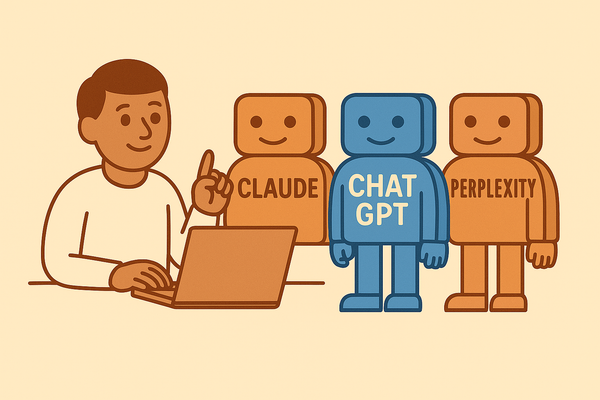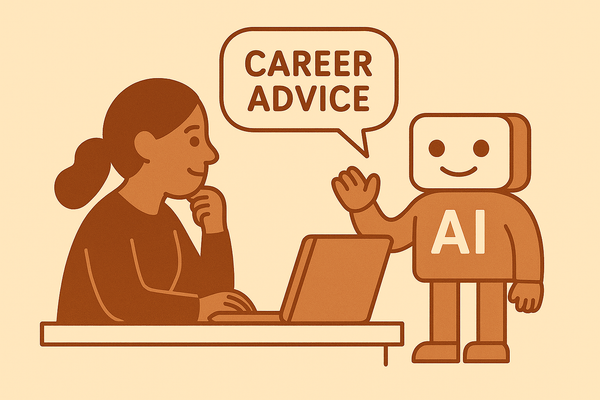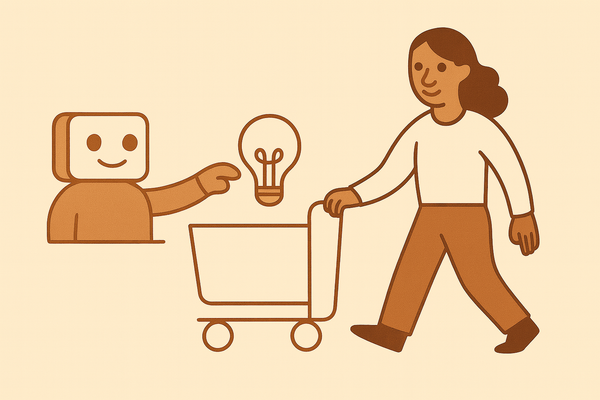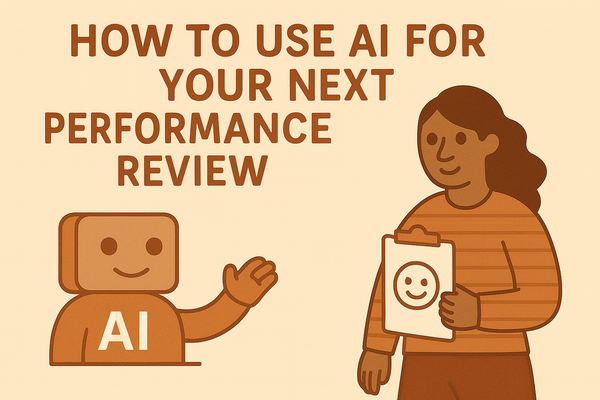How to use AI for your next Job Interview
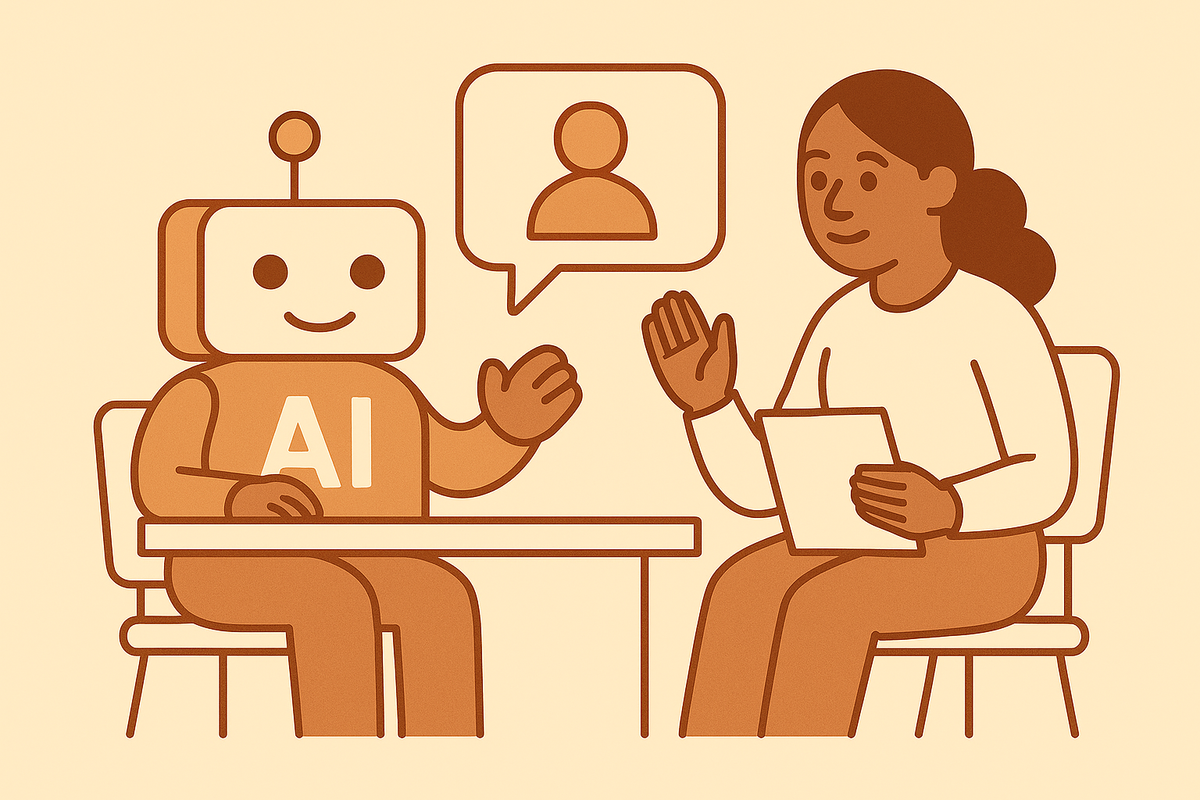
I've interviewed more times than anyone I know and every time I tell people about my system, they seem to enjoy it. So today i'm sharing it with you. Buckle up, this will be a bit longer than normal.
I treat interview prep like I'm building a case. Because I am. I collect as much information and organize it as much as possible because job interviews are already stressful enough, systems and preparation make you feel more confident and ready.
Most people still prep the old way - Google "common interview questions" and skim the company's About page. I guess it's better than nothing. But you can do so much more, especially with AI.
Let me walk you through how I'd actually prep for my next interview using AI.
Research First
First, I use Perplexity with something like: "I have a job interview with [Insert Company]. Give me the important stuff - what they do, how they make money, their values, recent news that might come up."
For public companies, I'll also ask Perplexity to pull up their latest 10K. That's where you find the real challenges they're facing, not the marketing fluff on their website.
You can also use Perplexity to search for company culture on sites like Glassdoor, Levels.fyi, and even Reddit. Something like: "[Company name] culture Glassdoor 2025" or "[Company name] work environment Reddit 2025". Make sure to include the year so you're getting current info, not outdated posts from 5 years ago.
I remember when I was interviewing for a data analyst role at a SaaS company. Their website was all "we're revolutionizing customer engagement." The 10K showed they were struggling with churn and had just lost their biggest client. Guess what came up in the interview?
When you know who's interviewing you, find them on LinkedIn and export their profile as a PDF.
Organize Everything
As you're doing research, put everything in one place. I use Obsidian and Craft Docs, but Apple Notes, Google Drive, Notion all work. It doesn't matter.
Create a folder for your job search. I organize mine by year and then by company and role. In there, I dump:
- The job description (save as PDF because those links will disappear)
- My resume (the version I actually sent them)
- Company research outputs
- LinkedIn profiles of who I'm meeting with
Making AI Do the Heavy Lifting
If you're paying for ChatGPT or Claude, create a new project and upload everything into it. The job description, your resume, all that research, the interviewer profiles. If you're not paying for it, just use a regular chat and add everything as attachments.
Now you've got AI with more context about this interview than most candidates ever gather.
Ask it to look at the job description compared to your resume and predict what questions they'll actually ask. Include not only the standard stuff like "tell me about yourself" but also specific questions based on gaps in your experience or things they highlighted in the job posting.
For "tell me about yourself," I have a 2-minute version I use almost every time. It covers who I am, what's important to me, high-level background overview, and I tie it to the role and what I want to do in the future and why the job is a good fit. I keep it consistent but adjust the ending based on the specific role.
But having good answers isn't enough. You need good stories.
Stories That Work
I used to try memorizing different answers for different questions. Disaster. I'd get nervous and mix everything up, or worse, sound like I was reading from a script.
Now I have maybe 7-8 stories that I know really well. And I can adapt them to answer different behavioral questions.
Like when I was an analyst and was responsible for the pay equity analysis we did every year. That one story can cover:
- Working with sensitive data ("Tell me about a time you handled confidential information")
- Managing multiple stakeholders ("Give me an example of coordinating with different departments")
- Projects with business impact ("Describe a project that affected the company's bottom line")
- Process improvement ("Tell me about a time you improved an existing process")
- Working under regulatory pressure ("How do you handle compliance requirements")
I use what I call the CAR framework instead of STAR because it's simpler:
- Context (what was happening)
- Action (what I did)
- Result (what happened as a result)
AI is actually really good at helping you refine these stories. Upload a rough version and ask "How can I make this more compelling while keeping it under 2 minutes?" It'll suggest ways to sharpen the details and make the outcome clearer.
Practice That Doesn't Suck
I know this sounds weird, but I literally practice interviews with AI. I'll tell ChatGPT: "You're the interviewer (refer to the LinkedIn PDF attached) for the job description at the company. Ask me questions like you're actually interviewing me. After a few questions, give me feedback on my answers."
It's not perfect - AI doesn't pick up on body language or the weird interpersonal stuff that happens in real interviews. But it's way better than practicing in your head. You start noticing patterns in your own responses. Like, oh, I always ramble when talking about that project, or I never mention the actual numbers when I should.
From my time working in sports, we had this principle we'd teach players: Create an environment in practice that feels as real to the actual game as possible. Better yet, make practice harder than the game. So when your interview prep feels more challenging than the actual interviews, that's when you'll know your prep is working.
Questions That Make Them Remember You
Everyone knows you should ask questions at the end. But what exactly do you ask?
I ask AI to reference the interviewer's LinkedIn profile we uploaded earlier and come up with personalized questions I can ask. Like if they used to work in consulting before moving to their current role, I might ask: "I noticed you transitioned from consulting to [current role] - what skills from consulting have been most valuable here?"
Not groundbreaking, but it shows you paid attention. And people always like talking about themselves.
I also pull from all that company research we gathered. If their 10K mentioned expansion into international markets, I might ask about challenges they're seeing with that growth. Specific questions based on actual information.
Learning From Each One
Most people treat interviews like isolated events. I keep notes on everything:
- What questions they asked
- How I answered (the real version, not how I wish I'd answered)
- What I stumbled on
- Anything that surprised me
Then I upload those notes to the same AI project. Over time, you start seeing patterns. Tech companies always ask about handling ambiguity. Consulting firms focus on problem-solving frameworks. Startups want to know about wearing multiple hats.
Your 5th interview becomes way easier than your 1st because you're building on what you learned.
Final Round Strategy
If you make it to final rounds, the questions change. It's less "can you do the job" and more "are you the right fit for this specific team."
This is where all that context you fed to AI pays off. Ask it: "Based on everything we know about this company and role, what should I expect in final rounds? Should I prepare a presentation? Bring portfolio examples?"
Different companies have totally different expectations. Some want you to present ideas. Others just want to see if you can have normal conversations with the team. AI can help you figure out which type this is based on the company size, role level, and industry.
Depending on the role and level, there's a strong chance you'll talk to the head of the department or even the boss of the hiring manager you'll report to. They'll almost always ask something to the effect of "How has the process gone so far?" But beware - this isn't just a pleasantry. It's a test to see if you've been paying attention and really understand the role. This is where you can use all your research and notes to impress them and show you know your stuff.
I'm not saying you need to do ALL of this for every interview. If it's just a quick screening call, basic prep is fine.
I can do this process in about 20 minutes now because I've gotten really good at it. But if you don't have a lot of experience interviewing or haven't done it in a while, spend more time on it. The system gets faster once you've used it a few times.
The goal isn't to sound like a robot who rehearsed everything. It's to be so prepared that you can relax and have a real conversation about how you'd approach the work.
Next time you have an interview coming up, try even just one or two of these things. Create the folder. Do the Perplexity research. See how it feels different.

